Double Grammy star gives blues history “America’s Gift” five stars.
Meet Laurence Juber, formerly with Paul McCartney and Wings and the greatest rock supergroup of all time.
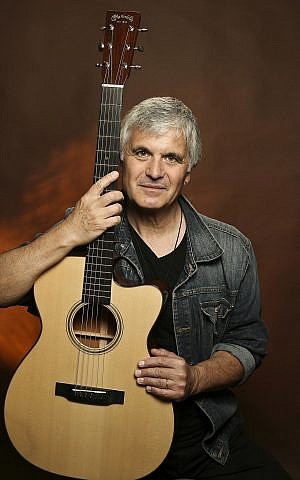
I was humbled recently to receive a five-star review on Amazon Books, from double Grammy winner Laurence Juber, for my paperback, ‘America’s Gift: The Untold Story of how Blues Evolved’. What made it a double whammy is Laurence is a renowned guitar and music historian, as well as one of the top acoustic guitarists of all time, as rated by America’s Acoustic Guitar magazine. He was also voted “Guitarist of the Year” by Fingerstyle Guitar Magazine. So, as Mark Knopfler so succinctly put it, the boy can play.
And, boy, can Laurence Juber play. He performed lead guitar for Paul McCartney and Wings, as well as the more intricate acoustic stuff, on record and on world tours from 1978 until Wings disbanded in 1981. It was with Wings that Laurence Juber won his first Grammy, for Best Rock Instrumental Performance, playing electric guitar on the hard-rocking ‘Rockestra Theme’, recorded in October, 1978.
Greatest rock supergroup ever.
The ‘Rockestra Theme’ saw Laurence part of what must be the most impressive supergroup ever assembled. Alongside Laurence Juber on electric guitar were Pink Floyd’s David Gilmore; the Who’s Pete Townsend; the Shadows’ Hank Marvin; and Denny Laine of Wings, formerly of the Moody Blues. Indeed it was Denny Laine who sang lead vocals on the Moody Blues first massive hit, the magnificent ‘Go Now’ which charted around the world, topped the UK pop charts in 1965 and made number six in America.
On bass guitar were Paul McCartney (no need to say former Beatles but I’ll say it anyway), Ronnie Lane of the Faces and formerly the Small Faces; John Bonham of Led Zeppelin; and Bruce Thomas of Elvis Costello’s backing band, the Attractions.
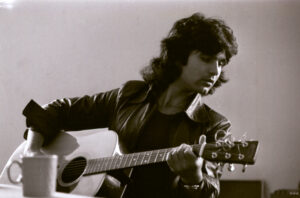
Playing keyboards was Tony Ashton whose single ‘Resurrection Shuffle’ with Ashton Gardner and Dyke made number three in the UK pop charts in January 1971, and number 40 on Billboards Hot 100 in America. I mention this only because in 1970 I promoted ‘Resurrection Shuffle’ in London for former Beatles PR, Tony Barrow, with whom I also promoted Paul McCartney and Wings. But that, of course, is nowhere near as impressive as playing guitar for McCartney like Laurence Juber.
But back to Wings’ rocking ‘Rockestra Theme’. Also on piano were Led Zeppelin’s John Paul Jones; Procol Harem’s Gary Brooker; Fab Macca, himself, and Macca’s wife, Linda McCartney. On drums were Wings’ Steve Holley, Led Zeppelin’s John Bonham, Kenny Jones of the Who, formerly with the Small Faces and Faces; plus two extraordinary well known session percussionists, Ray Cooper and Morris Pert.
Unfortunately, recently departed guitar genius Jeff Beck dropped out because he wanted the power of veto over his own guitar parts; and the Who’s Keith Moon, meant to appear, but who unfortunately died a month before the recording session.
As Laurence Juber told the Beatles Magazine ‘Daytrippin’,: “There were dozens of mic channels all going at once with three drum kits, six guitars, three basses and keyboards, horns and percussion. But everybody checked their egos at the door and played great, and it was such a wonderful experience.”
Greatest ‘live’ rock supergroup ever.
The ‘Rockestra Theme’ was later performed live at London’s Concert for Kampuchea in December 1979, by another McCartney supergroup raising money for Cambodian war victims. Compere was Billy Connelly. Added to those on the record were Led Zeppelin’s Robert Plant on vocals; Rockpile guitarists Dave Edmunds and Billy Bremner; Pretenders guitarist James Honeyman-Scott; and bassist Ronnie Lane of the Faces and Small Faces. Doesn’t it just show the drawing power of Paul McCartney.
On the concert’s video, Paul McCartney can be heard calling Pete Townsend a lazy sod (amongst other insults) because he wouldn’t wear a silver suit like everybody else. Laurence Juber is the guy on the video who walks up behind Pete Townsend and puts a silver topper on his head. Pete promptly flings the top hat into the audience. The concert, sadly, was John Bonham’s last live appearance, the drummer dying in September, 1980, as Led Zeppelin were about to start their first American tour since 1977.
Going Solo.
When Wings disbanded in 1981, Londoner Juber moved to New York, producing and releasing his first solo album ‘Standard Time’ in 1982, from recordings made in 1979. One track featured Paul McCartney on bass, along with Juber’s fellow Wings, Denny Laine and Steve Holley. It was in New York that Laurence met his wife, Hope, moving to her native Los Angeles, where his career took an unexpected turn. As well as resuming a successful session career (interrupted when Mr McCartney came calling), Laurence found himself creating music for countless TV and movie scores including three of the most iconic sitcoms of all time: ‘Happy Days’, ‘Home Improvement’ and ‘Roseanne’. Laurence also played on Oscar-winners ‘Dirty Dancing’, ‘Good Will Hunting’ and the animated ‘Pocahontas’.
With a music degree from London’s famous Goldsmiths College, Laurence’s session work started in 1975 when Beatles producer George Martin invited him to contribute on an album for British jazz great, Cleo Lane. Laurence then played on one of the best-selling French language albums ever, for legendary crooner Charles Aznavour. Also in 1977, Laurence worked on the James Bond film ‘The Spy Who Loved Me’, starring Barbra Bach who went on to marry Ringo Star in April, 1981. Coincidently, in the July of 1980, Juber had played guitar on Ringo’s ‘Stop and Smell the Roses’ album. Since then, Laurence has released a host of critically-acclaimed solo acoustic guitar albums, including ‘Solo Flight’, ‘Mosaic’, ‘Guitarist’ and four albums of his interpretations of Beatles tunes. He maintained his Beatles connection in 1986 when George Harrison invited Laurence to contribute guitar to George’s soundtrack to the movie Shanghai Surprise.
Indeed, Laurence’s guitar has graced an astonishing 80 records since 1982, including those by former Go-Go Belinda Carlisle, Al ‘Year of the Cat’ Stewart, Beach Boys founder Mike Love and triple Grammy-winning pop superstar, Harry Styles. But it was for his guitar track on ‘Henry Mancini: Pink Guitar’, a compilation of guitar versions of famous Henry Mancini compositions, that Laurence won his second Grammy for his ‘Pink Panther Theme’ contribution to 2005’s Best Pop Instrumental Album.
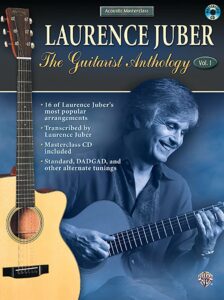
Music and guitar historian.
As well as being an incredible guitarist, Laurence has a phenomenal knowledge of guitar and music history. Such historical knowledge made it especially humbling to discover he not only bought ‘America’s Gift’ but gave it a maximum five stars on Amazon Books. Not expecting you to go to the trouble of reading his review on Amazon Books, here’s what it said:
“A Remarkable Musical Journey. 5-stars. This book is musicologically satisfying, fast-paced and doesn’t get bogged down in analysis. Placing it in its social and commercial context, author Paul Merry illuminates how the blues, on stage and in the recording studio, became a uniquely American art form, reflecting the nation’s diverse musical traditions.” Laurence Juber.
Meeting up with Laurence recently, I had a close-up view of his total command of the fretboard as he demonstrated how so many modern pop songs evolve from blueprints laid down in the 1800s. Nineteenth century chord patterns he was playing suddenly turned into Beatles and Stones classics. We had earlier corresponded about my ‘America’s Gift’ mention of Henry Worrell, an open guitar tuning pioneer who moved to the USA, from England around 1835, at the age of ten. Worrell’s 1856 composition ‘Sebastopol’ became one of nineteenth century America’s most popular pieces for solo guitar. Naturally, Laurence not only knows its in-depth history but can play it, which isn’t really surprising since he’s released solo albums exploring open tuning. If you’re not sure what open tuning is, think Keith Richards and the Rolling Stones. Keith was turned on to open tuning by Ry Cooder in 1968 when the American slide guitar maestro first played on the Stones albums ‘Let It Bleed’ and ‘Sticky Fingers’. Keith’s played in open tuning ever since, a tuning described as the trick that launched a thousand riffs. I’m sure Laurence Juber knows even more riffs.
He also has an encyclopaedic knowledge about the evolution of guitars from the middle ages to the present and is, I believe, an accomplished lute player. That said, much as I appreciate Laurence’s acoustic guitar supremacy, and he one of the world’s best, it’s his electric guitar work that really excites me. Here’s one of the rare examples you’ll find of Laurence Juber demonstrating his electric guitar prowess on YouTube.
Funny business.
Laurence’s wife, Hope, is the daughter of Sherwood Schwartz, creator of classic TV sitcoms Gilligan’s Island and The Brady Bunch. No surprise, then, to discover Hope’s a comedy TV writer herself, working on long-running spin-off series, ‘The Munsters Today’ and ‘The Brady Brides’. Hope Juber even has her own comedy rock trio, The Housewives, aka The Nasty Housewives, to which Laurence contributes. How could he not? Founded with American blues singer Maggie Mayall, former wife of British blues legend John Mayall, and Waltons actress and singer, Lisa Harrison, The Housewives have featured on such U.S. TV shows as Oprah and Entertainment Tonight, even releasing an album, ‘Get The Dirt’.
Again, it was no surprise when Sherwood Schwartz asked Hope and Laurence to contribute songs to two musicals based on his famous TV shows: ‘Gilligan’s Island: the Musical’, which played America-wide and in Australia, and ‘A Very Brady Musical’, currently in development for a national U.S. tour.
It’s a Family Affair.
With parents like Laurence and Hope, musical talent runs in the family, and Laurence is undoubtedly proud of his two daughters, Ilsey and Nico. Musician, playwright, producer and musical theatre writer, Nico also runs ‘Thrive/Survive Los Angeles’, a support group for young adult cancer survivors, while Ilsey is a singer songwriter.
American singer songwriters are a dime a dozen you’re probably thinking, but this singer songwriter, like her dad, has to be one of the best in the world in her field. Ilsey Juber’s songs include “Nothing Breaks Like a Heart” by English musician Mark Ronson featuring Miley Cyrus, which went Platinum worldwide, reached number two on the UK singles chart, was nominated for Song of the Year at the 2020 Brit Awards, and topped dance charts globally including in the USA and Australia. Phew!
Ilsey is also a collaborator with that other renowned English musician, Grammy sensation Harry Styles. She co-wrote Harry’s ‘Treat People With Kindness’, which went Gold in the USA, and which featured – you guessed it – Ilsey’s father Laurence Juber on guitar.
Ilsey’s list of compositions goes on and on. She co-wrote ‘Mercy’ by Shawn Mendez, a song even I know. ‘Mercy’ reached 15 in both the USA and UK, going Platinum around the world. Her other songwriting credits include ‘One of Me’ by Little Nas X featuring Elton John; Linkin Park’s ‘Talking To Myself’ with 10.1 million You Tube views; songs for Beyoncé, Britney Spears, Christine Aguilera, Drake, Duo Lipa, Kelly Clarkson, Mariah Carey, Jennifer Lopez, Michael Bublé, Pink, rock bands Bleachers, Train and Weezer and so many others.
I better stop now before this piece on Laurence Juber and my ‘America’s Gift’ book evolves into a piece on Ilsey Juber writing America’s song book. Not that I think Laurence would mind.
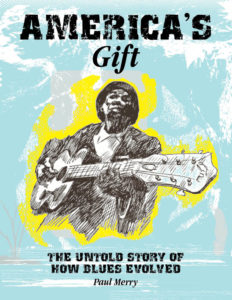
Here’s what the book in question looks like. Take a free preview on http://goo.gl/At5AZe or check out my eBooks ‘How Blues Evolved’ Volumes One and Two on Amazon Books.
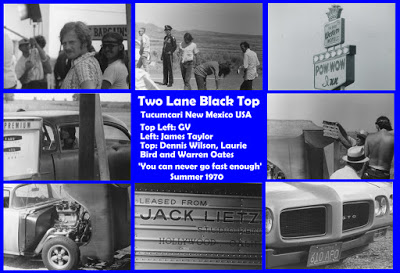
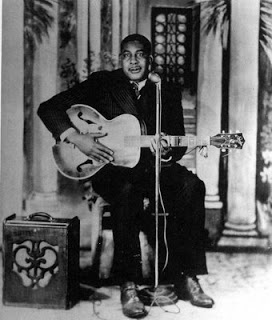

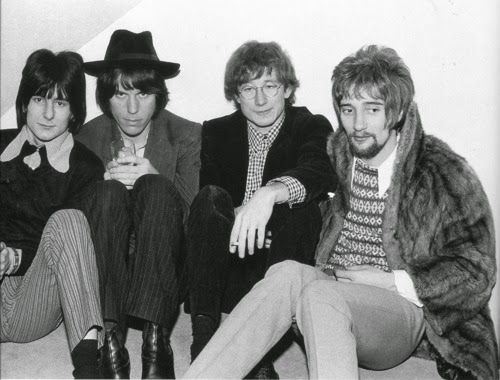
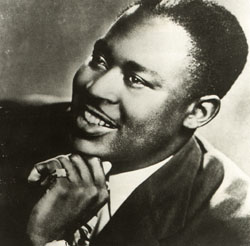

Another fabulous in-depth piece from top music writer Paul Merry. If you like Paul’s writing style and undeniable talent for getting to the nub of any musical subject, then you simply must read America’s Gift, available on Amazon. I’ve spent a lifetime reading books on various genres and their main exponents, but have to say that America’s Gift takes some beating. I couldn’t put it down, and one of the pleasing aspects of Paul’s diligent research is that he resists the temptation to simply journey down those well-known highways of the blues, instead often turns off the main drag down any number of back roads to uncover facts of which most people are unaware. Packed with hitherto unknown facts, and with the text neatly complemented by archive shots, this is a book that no music lover should be without.
That’s such a great comment, John. Thank you so much.